PAST EVENT: The Emotion of Removal
Wednesday 9 June 2021, 17.00 - 18.30
Join freelance curator, Jon Sleigh, and a panel of engagement specialists to consider what happens to the space left behind at the Pitt Rivers Museum now that the human remains have been removed from public view. This will be an open conversation on space, access and opportunities when colonial narratives are removed and what could take their place. Jon will be joined by Angela Billings, Laura Van Broekhoven, Ashley Almeida and Liam Wiseman.
Supported by TORCH Oxford.
This webinar is part of the Pitt Rivers Museum Radical Hope series. All talks will be recorded and are available to view after the event on the Radical Hope page.
Speakers
Liam Wiseman (he/him)
Liam Wiseman (he/him) is a Senior Relationship Manager for Arts Council England, working on funding innovative and unique cultural projects. Over the last few years, he has worked in a number of high-profile cultural organisations, such as Exeter Cathedral, Bristol Old Vic and Stonehenge World Heritage Site. He is a Fellow of the Royal Society of the Arts and was a participant in the 2019 Clore Emerging Leaders cohort. He has a particular interest in decolonising the museums sector, and is part of the Decolonisation Working Group with the Museums Association.
Ashley Almeida (he/him)
Ashley Almeida (he/him) is a museums and heritage professional with over a decade of experience from volunteering and working in the sector. He specialises in learning and has worked with a number of audiences to facilitate learning opportunities including schools, families and young people. Ashley is a member of Museum Detox and a huge advocate for greater inclusion and representation within museums. He has worked with a number of institutions including the National Trust, MOLA (Museum of London Archaeology) and currently at the British Museum focussing on youth engagement.
Jon Sleigh (he/him)
Jon Sleigh (he/him) is a Learning Officer, Learning Curator, and art history writer. He works nationally freelance as a specialist in engagement with a diverse portfolio of arts institutions, museums and heritage sites across the UK. Clients include the National Portrait Gallery, The National Gallery, The Government Art Collection (DCMS) The National Archives, Historic Royal Palaces, Art Fund, The V and A and the Arts Council Collection. Prior to this Jon worked for Birmingham Museums Trust / The Arts Collection in round one of the acclaimed ACE National Partners Program. He produces, delivers, and consults on collections engagement. Jon has built a national reputation for innovation, applied ethics and delivery of projects reflecting inclusive futures. He has a passion for challenging and underrepresented narratives in art – co-producing with communities to bringing their lived experience to artworks for advocacy.
Laura Van Broekhoven (she/her)
Laura Van Broekhoven is the Director of the Pitt Rivers Museum, Oxford. She holds a Professorial Fellowship at Linacre College, and is associated with the School of Anthropology and Museum Ethnography at Oxford. Previously she led the curatorial department of the National Museum of World Cultures (Amsterdam, Leiden and Berg en Dal) and was a lecturer in archaeology, museum studies and indigenous heritage at the Faculty of Archaeology at Leiden University. She currently serves on numerous advisory boards and panels. Laura's current research interests include repatriation, redress and pluriversality. The work being developed at the Pitt Rivers Museum focuses on equity, co-production and reflexive inquiry. Her regional academic research has focused on collaborative collection research with Amazonian (Surinam and Brazil) indigenous peoples, Yokot’an (Maya) oral history, Mixtec indigenous market systems, and Nicaraguan indigenous resistance in colonial times.
Angela Billings (she/her)
Angela is currently studying for an MA in Arts Administration and Cultural Policy at Goldsmiths University, London. She recently undertook a research placement at Pitt Rivers Museum, Oxford which examined the public’s responses to the removal of human remains from open display in the summer of 2020.
She has spent over a decade working in the charitable sector raising funds from government bodies, trusts and foundations to support the delivery of cultural events. She previously worked as a senior manager in education.
Her academic interests are decolonisation, polarisation of language and redress.


